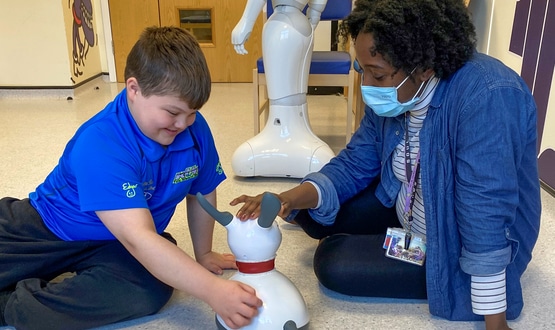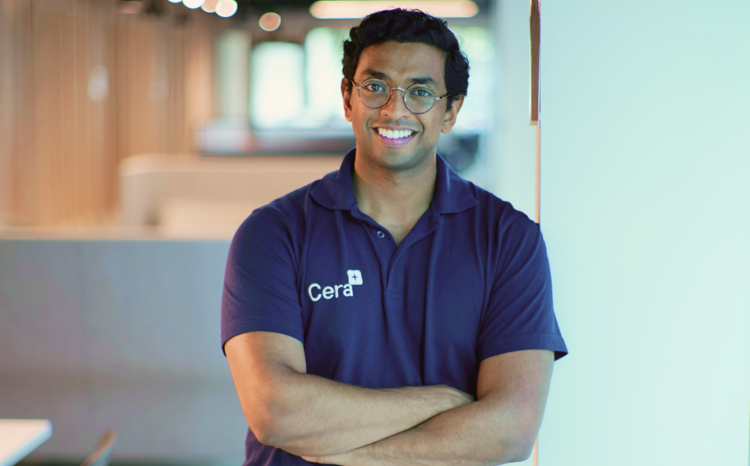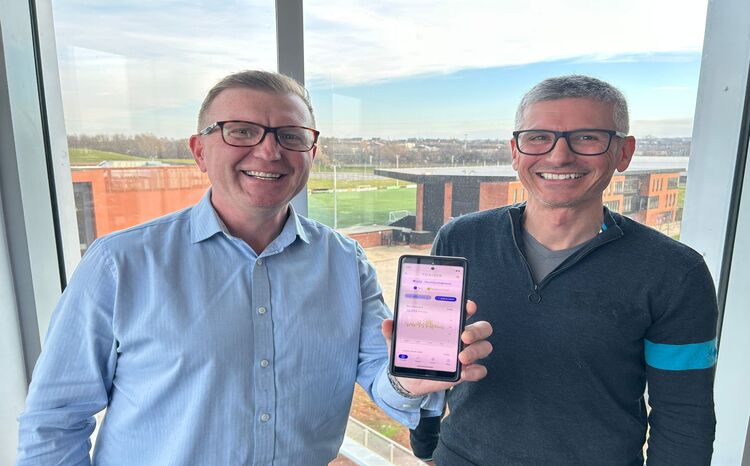Sheffield Children’s Hospital hosts robot study for paediatrics

Sheffield Children’s Hospital is hosting a study into the potential use of social robots to calm patients’ anxieties and fears.
Brenda Littler, a PhD student from the University of Sheffield, is exploring the types of interactions between robots and young patients at the hospital and the emotional impact the robots could have on those aged between five and 12.
Social robots can interact with humans through speech and movement with previous studies suggesting they can reduce anxiety and distress in patients.
Littler said: “We’re doing this study because we want to find a way to help reduce the anxiety and distress levels in children visiting hospital and help take their mind off everything that is going on.
“Some children who come into hospital might be with us for a number of hours, so being able to offer them something fun and new to entertain them and help their wellbeing is great. I am hoping the results of the study will help us understand how social robots can fit in a hospital and work alongside staff, and how we can go about introducing them in different settings.
The study is sponsored by Sheffield Children’s NHS Foundation Trust and is a collaboration between Sheffield Children’s, University of Sheffield, and Sheffield Hallam University.
As part of the research the robots have been visiting four areas of Sheffield Children’s: the Medical Daycare, the Theatre Admissions Unit, Haematology and Oncology Unit and Ward 3.
Professor Paul Dimitri, professor of child health and consultant in paediatric endocrinology at Sheffield Children’s is the study’s principal investigator and is supervising the project.
He said: “Social robots have the ability to support our patients, some of whom have complex and challenging journeys due to ill health.
“Brenda’s work is ground-breaking in helping us to understand how our patients react and respond to different types of social robots, and how we best use them in children’s healthcare. As a leader in child health technology, Sheffield Children’s is developing a diverse range of novel technologies as part of the National Institute for Health Research (NIHR) Children and Young People MedTech Cooperative, established to support the development of world-leading technologies for children’s healthcare.”
It’s not the first time that robots have been developed for the benefits they can bring patients. In April 2020, AI and robotics experts from Scotland’s Heriot-Watt University’s National Robotarium started a four-year project to develop socially assistive robots that could perform open social conversation in healthcare settings.





